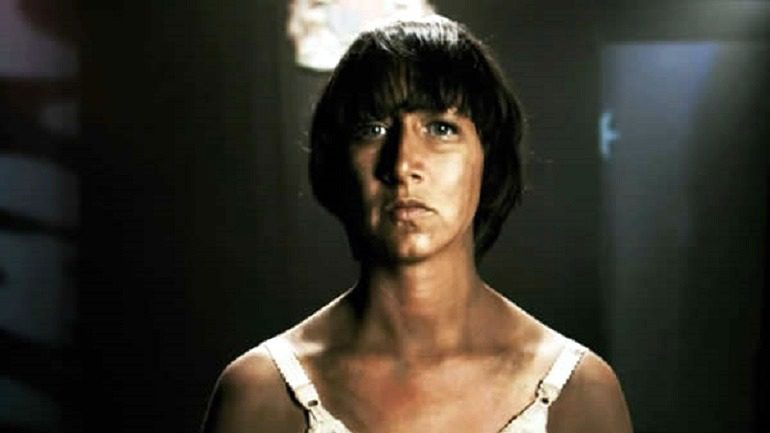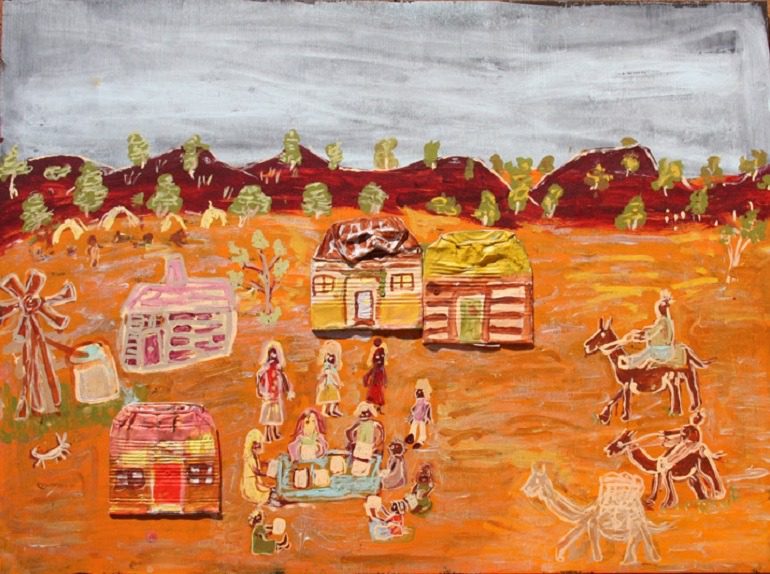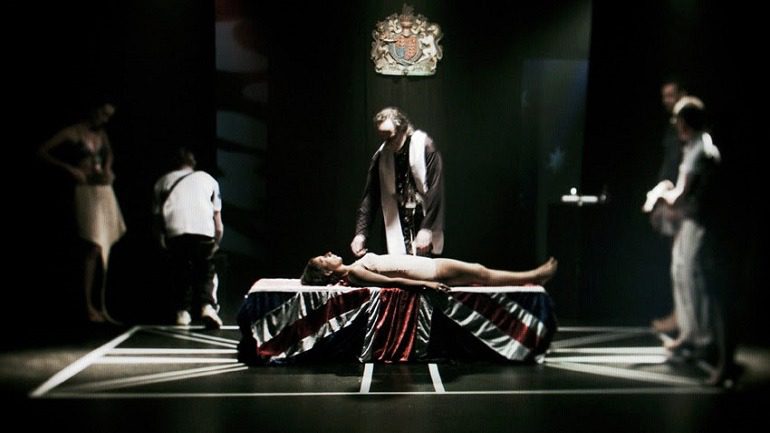ART NEWS
Megan Cope, The Blaktism 2014 (still) single-channel HD video. Image Courtesy Western Australian Indigenous Art Awards. © the artist
ART NEWS
Western Australian Indigenous Artist Megan Cope wins prestigious art award with Video art investigating Aboriginal Identity and authenticity

Megan Cope, The Blaktism 2014 (still) single-channel HD video2. Image Courtesy WA Indigenous Art Awards. © the artist
AUSTRALIA- Megan Cope, an Australian Indigenous artist has won the 2015 Western Australian Indigenous Art Award. Noted as one of Australia’s richest Indigenous art prizes for exceptional achievements by an Australian Indigenous artist, the award comes with a prize of $50,000.
Megan Cope is an accomplished artist whose work explores notions of environment, identity, geomorphology and mapping. She was selected from 118 nominations received from across Australia, including metropolitan, regional and remote areas.
Born in Brisbane, Queensland, Megan Cope, who now lives and works in Melbourne, Victoria, is a Noonuccal/Ngugi woman from Stradbroke Island. Her video art titled The Blaktism 2014 won her the prize. The video revolves around a young female Australian who undergoes a sacred ritual ceremony performed by cultural authorities that are ever present in the Australian landscape. With the ritual, the cultural authorities validate her authenticity as an ‘acceptable Aborigine’.
The Blaktism 2014 is a complex video highlighting the issues of race, discrimination and stereotyping in Australia. With it, Cope illuminates the absurdity of racial classification, while also expressing disdain for religious and state authorities, who have positioned themselves as the determiners of authentic Australian identity. Commenting on the selection of The Blaktism (2014), the panel notes:
Megan Cope’s multi-layered video work, The Blaktism 2014, speaks to a contemporary reality for Indigenous Australians. In it, she offers a theatrical and humorous insight into the complexities of Indigenous identity, notions of citizenship and Australian stereotypes through her imagined ‘blaktism’. Cope’s dramatic ritual challenges concepts of authenticity, acceptance and belonging. It highlights the often unseen power that religious and state authorities have to determine and authorise identity and agency for Indigenous Australians.
The 2015 selection and judging panel of the Western Australian Indigenous Art Award consisted of Amy Barrett-Lennard, Director of Perth Institute of Contemporary Arts (PICA); Kimberley Moulton, Curator and Project Officer of Birrarung Gallery at the Melbourne Museum and Clotilde Bullen, former Curator of Indigenous Art, Art Gallery of WA.
Eunice Yunurupa Porter wins the Western Australian Artist Award

Eunice Yunurupa Porter, Riding camels – Warburton Mission times 2014, synthetic polymer paint and recycled tin on plywood
60 x 80 cm. Courtesy Nick and Ozlem Wallwork © the artist, courtesy Warakurna Artists
In addition to Megan Cope, the panel also awarded Eunice Yunurupa Porter the Western Australian Artist Award. Awarded for the exceptional achievements of a Western Australian Indigenous artist, the award carries the cash prize of $10,000.
Born in Wirrkural, WA, Eunice who lives and works in Warakurna, WA, is a senior Ngaanyatjarra woman. The panel describe Porter’s work thus:
Eunice Yunurupa Porter’s body of work documents contemporary history for her own community, including first contact with non-Indigenous Australians that remain within the senior members’ living memory. Her works also depict community life within a changing environment. For instance, one of the Award winning paintings talks of the ongoing mining activity on her community’s Country and how that affects their way of life. It is a pertinent Western Australian story that has been told in a highly lyrical and evocative manner. Found objects add texture to her paintings, which quirkily play with scale.
Founded in 2008, the Western Australian Indigenous Art Awards is supported by the Government of Western Australia through the Department of Culture and the Arts. In addition to the presentation of awards and prizes, artists selected for the award are given the opportunity to showcase their works in a well-curated exhibition. Works by this year’s nominees and winners are presently on display at the Art Gallery of Western Australia.
The exhibition according to Carly Lane, the newly appointed Curator of Aboriginal and Torres Strait Islander Art at AGWA shows the diversity of the artistic development across Australia. She explains:
Each of the artists in the exhibition brings a unique vision to the Awards. Their work is a mix of styles, ideas and aesthetic that, when placed together, reveals some of the dominant and emerging mediums, subjects and experiences shaping contemporary Indigenous art today. Their work gives insight into the aspirations and concerns of the artists, as well as those of the wider Indigenous community.
When the exhibition ends in October, the panel will present the winner of the People’s Choice Award, valued at $5,000, to the artist with the highest number of votes from the public throughout the exhibition period. Guests have the opportunity to vote online or in the gallery.
